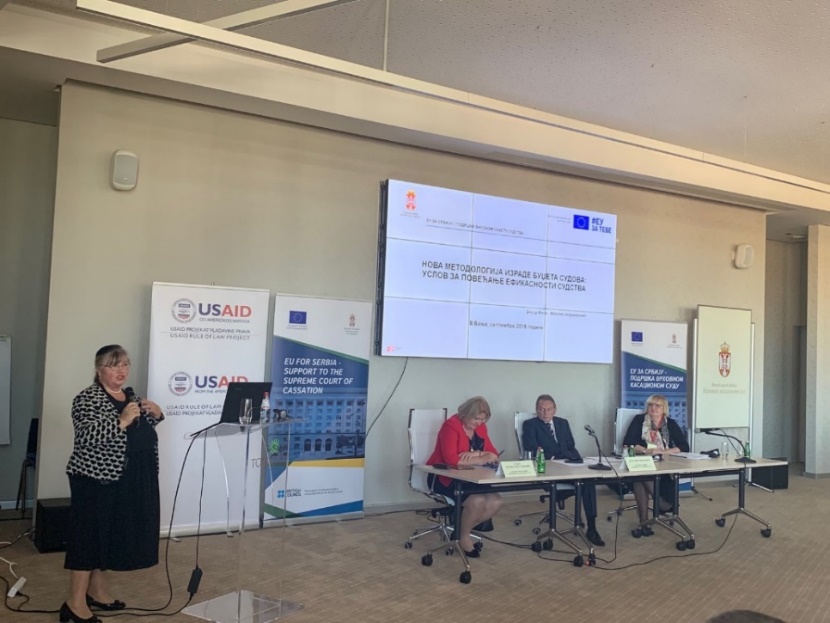A CHEAPER JUDICIARY BY WAY OF USING NEW METHODOLOGY
 The Project has, at the “Annual Conference of Judges
in the Republic of Serbia – Judicial Days
2019”, which took place in Vrnjačka Banja in the week between October 10
and 12, 2019, and which was attended by the Acting President of the Supreme
Court of Cassation and other presidents of the courts, presented steps in designing a new budgeting methodology and
performance management in courts and the judiciary, with an economical use of
resources. The Project presented the concept whereby court representatives turn
into , whose role is to
manage performance – cases, human and other resources – based on set standards.
The Project has, at the “Annual Conference of Judges
in the Republic of Serbia – Judicial Days
2019”, which took place in Vrnjačka Banja in the week between October 10
and 12, 2019, and which was attended by the Acting President of the Supreme
Court of Cassation and other presidents of the courts, presented steps in designing a new budgeting methodology and
performance management in courts and the judiciary, with an economical use of
resources. The Project presented the concept whereby court representatives turn
into , whose role is to
manage performance – cases, human and other resources – based on set standards.
Therefore, the Project has suggested that Serbia should build a strong, independent, efficient judiciary through the use of performance-based budgeting, which in turn means that the budget itself has to provide the conditions for trial within a reasonable time and access to justice for all citizens of Serbia, and fulfilment of international commitments laid down in Article 6 of the European Convention on Human Rights.
According to recommendations from the new Methodology that the Project has been working on, a more efficient judiciary needs improving in segments of internal and external judiciary performance. Internal judiciary performance encompasses more balanced distribution of cases among judges and a fairer workload on each judge, economical and efficient management of cases, planning the number of resolved court cases at the level of one court, and alignment of necessary resources. External judiciary performance encompasses satisfaction of court service users – citizens, taxpayers, as well as predictability in terms of duration of court cases, and consequently, fewer appeals and claims for non-pecuniary damages.
Over the previous years and according to publicly available information from the adopted laws on final budget accounts, Serbia has spent a significant portion of court budget on paying damages to citizens from the allocation for fines and penalties imposed by court decisions, including compensations for exceeding the reasonable trial time limit. This information suggests that the inefficient judiciary not only fails to serve justice to citizens, but it also has to be paid by the taxpayer.


